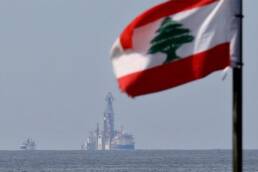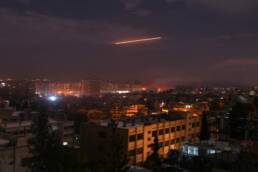Introduction:
The awaited Vienna negotiations related to the Iranian nuclear file present a set of assessments that depend on a number of US internal and external factors, the status of the Iranian nuclear file on the political and technical dimensions, and on the Israeli and regional situations.
Maybe the negotiations regarding the Iranian nuclear file have witnessed a progress to revive the Vienna deal that was signed on July 14,2015, even before holding the seventh round in Vienna in November 29, 2021. However, the intensity of media coverage, analyses, and leaks, and the many scenarios that have been proposed by experts, research centers, and media outlets regarding the color of smoke that will go out of the chimney of the International Atomic Energy Agency (IAEA) in Vienna points out to the diversification of the priorities of the various parties and of the scenarios. These open scenarios have collided with the fact that the fate of the seventh round is still dependent of the US aim to obstruct Iran’s drive towards obtaining a secret strategic military nuclear program, and collided with Iran’s requests from Joe Biden for and immediate and total lift of the sanctions, and for US guarantees to Tehran that the new Vienna deal will not face the fate of the old deal at the hands of President Donald Trump.
The Ground on Which the Negotiations stand
Vienna is facing an instrumental test for the new facts that dominate the seventh round, which came in the middle of the years of disablement of the deal, since the Donald Trump administration threw it in the wind in May 2018. The most important of these facts is the rush of the Iranians to develop their nuclear program, and increase their storages of enriched uranium by 60 percent (more specifically to 75 kgs), to reach the status of nuclear threshold, which means to produce the bomb in a relatively short period of time. Iran’s lot have started to favored on the regional level after it acquired a wide national base that supports a nuclear program open to the military field, wile none of the Gulf Cooperation Countries (GCC) has a national competitor until today. In addition, Saudi Arabia’s nuclear ambitions are still waiting for the US Congress green light, and the US relinquishing of some conditions, which would give Saudi Arabia an entry, though late, to head towards a sort of nuclear balance with Iran, if in the future it thinks of getting out of US hegemony.
The GCC countries do not face the Iranian nuclear progress, and the US retreat from the Middle East and focus on China, but with more normalization with the only competing nuclear power in the region which is Israel. This tendency is expanding, especially after Robert Malley, the US special representative for Iran, and the directors of the ministries of the three European countries involved in the negotiations informed the GCC countries that they will no longer demand to include the Iranian missiles file on the negotiating table of the seventh round of talks, nor will they discuss the expansion of the Iranian regional influence into Yemen, Iraq, Syria, and Lebanon, and that they would rather focus on preventing Iran from reaching the threshold of the becoming a nuclear military power which is a US and Israeli priority.
The Iranians and Americans have tested the intentions of each other which points out to the narrow exits and choices of the Vienna round. Hence, the Iranians have rejected a request by Rafael Grossi Director General of the IAEA, to reset his cameras in Karaj facility. On the other hand, the Americans did not free any of the frozen Iranian assets as a sign of goodwill. This shows that there is more stiffness in the stances, which is expected prior to any concessions on the eve of critical negotiations.
Iran’s priority to guarantee the deal
In these negotiations, the Biden administration finds itself in front of a basic Iranian request which is to provide guarantees in all potential scenarios in any probable deal, not only because the US was the one to pull out of the previous deal, but also because the conditions for a US retreat from any deal with Iran are still standing, in light of the expectation that the republicans will be the ones to dominate the US Congress in any future elections, and in light of the fact that Donald Trump is still a probable candidate to return to the White House. These pressures are becoming more urgent and might lead to any deal under any scenario, for two reasons: First, the continuous Israeli threats to direct a military strike against the Iranian military facilities similar to Operation Opera directed against the Iraqi nuclear reactor “Tammouz” in June 7 1981; Second, talks among former US officials of the necessity that the US lends it bombers B52h to Israel, in addition to bombs that weigh 13 tons and that capable of destroying the fortifications of the mountainous Fordow fuel enrichment plant, without taking into consideration the results or reaction of the Iranian side.
In addition, the upgrading of Iran into a state on the nuclear threshold will lead to the erosion of Israeli deterrence, especially if Iran spreads the shade of the state on the nuclear threshold in the regions under its influence as Israeli analysts say. However, the Iranian request for a full lifting of sanctions at once in return of returning to the nuclear deal and canceling all activities that followed its annulment will not be possible in any scenario of a deal, for the sanctions by themselves and the process of annulling them require very complicated legal mechanisms in the US. In addition, these sanctions have been set over a long period of time and they cannot be annulled immediately to satisfy the Iranian condition for a quick return to the nuclear deal. And if it is confirmed that the Iranians aim for a compromise in Vienna, yet they will not accept to return to the old deal, or to relinquish their accomplishments in developing their program, and they will look for a new frame that guarantees its continuity, noting that the task of the Iranian negotiator in Vienna will be much easier than his European or US counterparts.
US confusion against a unified Iranian position
If the US decision maker is confused due to the discord between the administration and The White House on one hand and the deep state on the other hand, then the unification of the Iranian stance in the hands of the conservatives, being the institutions of the Shura Council, the Presidency, the Supreme Leader, and the Revolutionary Guard gives Iran an added power that bypass the concessions made by the reformists in their betting on a deal with the US that was supposed to reserve a place for a moderate Iran on the map of the US influence. Because, with the election of Ibrahim Raisi as president and the end of the term of President Hassan Rouhani’s team, the Iranians are no longer counting on European guarantees, after the latter failed to fulfill their pledges to Iran to find financial mechanisms substitutes for the SWIFT system to pay and finance the trade with Iran, or even to find a single European company capable of bypassing the US sanctions and striking a deal even of 1 euro with Iran.
Also, it seems that the new Iranian administration is not in a rush to reach a deal, due to its conviction that the impact of the sanctions on Iran’s economy has been alleviated, and to its conviction that with the shift of its political position, Iran has become capable of challenging these sanctions. Ali Bagheri Kani Deputy Minister of Foreign Affairs of Iran and Chief Iranian negotiator in Vienna about starting the negotiations, and about the first round of negotiations rather than concluding them. For his part, Mohammed Mokhber Dezfuli, First Vice President of Iran, that “our priority is not to lift the economic sanctions off Iran, and that we are no longer linking our political and economic issues to these sanctions.” This team have reformulated a budget that decrease the dependence on oil and that bypasses the effects of the US sanctions on the Iranian economy. Dezfuli considers that the sanctions are not real problems that are facing Iran, because the sanctions are affecting only 30 percent of Iran’s economy. He rather sees that the real threat lies in mismanaging the resources and in the corruption that is rampant in the Iranian bureaucracy and management.
Before heading to Vienna, Iran chose an alternative to the West and decided to turn eastward and search there for economic and strategic partnerships and alliances, such as China and Russia that support lifting the economic sanctions off Iran, despite the fact that they do not support its nuclear program. Before Vienna, Iran had taken its decision to turn eastward towards China. So, it signed with it a strategic deal worth $250 billion. In addition, Iran had signed strategic agreements with Russia, and had joined the Shanghai Cooperation Organization (SCO). It had also been able to fail the US attempts to block all its oil exportations after it was able to export an average of 2.5 million barrels per day, in addition to being able to free some of its frozen assets abroad.
Building on a soft ground
The enthusiasm to reach a quick and effective deal is under big doubt, for in light of the US withdrawals from Saudi Arabia towards bases in Jordan, it has become confirmed that Washington wishes to decrease the tension and turn off fires in the Middle East and West Asia, in preparation for it to head to the South China Sea to contain the rise of China. However, the US is doing so without organizing its pull out, or discussing the Iranian regional role in Vienna or afterwards to assure its Arab allies, limiting itself only to declarations by its Secretary of Defense Lloyd Austin that “we will return if we deem it necessary,” and to responses related the Iranian nuclear program alone.
Even if the Iranians get limited peaceful tendencies, they will try to improve their negotiating conditions in any deal by benefit to the maximum from the US need to pull out. After a possible US – Iranian deal, the scenario of the expansion of Iranian influence in Iraq, after the US invaded this country, might get repeated, and Iran might fill in the void left by the Americans at the expense of the US Arab allies.
There is nothing that might hint to the possibility of any regional power, other than Iran, from filling the void left by the US pull out whether being Turkey or Russia, in light of the Arab regional system’s response to this pull out which is chaotic and unorganized, and which reflects the “Kabul Syndrome,” whether through its attempts to diversify its security guarantees expressed in the Saudi Emirati Turkish rapprochement, by alluding to signing arms deal agreements with Russia, or by signing agreements of security cooperation with Israel, especially in light of the US administration’s refusal to reactivate the relations with the Saudi Crown Prince Mohammed bin Salman.
The experience of Afghanistan seems to have an impact on the United Arab Emirates (UAE) building of an economic and military partnership with China behind the back of its retreating US ally. This has pushed the US to pressure the UAE to retrieve its permission to China to build a Chinese military base in secret on its shores on the Gulf, after this was unveiled by the CIA agents. This is an important sign of the “Kabul Syndrome” and on the attempts by regional powers to adapt to the conditions of the aftermath of the US pull out.
The Prospects: Breakthroughs rather than completed agreements
Today, it seems that the most likely scenario is to have temporary breakthroughs in the Iranian file that depend of President Biden’s initiative to partial lifting of the sanctions, as part of his constitutional prerogatives, that gets renewed every three months, until the election of a new president in 2024. As of a final agreement, it remains dependent of the reelection of Biden, or the return of majority in the US Congress to the democrats that supports this deal, and this is a scenario that is difficult to happen in light of the collapse of Biden’s popularity and the advance of the Republicans in all polls. On the other hand, the Iranians accept that the IAEA inspectors return to inspecting the Iranian nuclear facilities, and implement annex 5 which was suspended by the Iranian Shura Council after the assassination of the Director of the Iranian Nuclear Program Mohsen Fakhrizadeh Mahabadi a year ago by Israel. In addition, the US might initiate indirect negotiations in Vienna that might lead to an agreement which might not be better than the previous one, and might reflect its acceptance that Iran reaches the threshold of becoming a nuclear power, without citing this in the agreement. Because the Biden administration is aware that the continuation of the current situation is not in its favor or the favor of its allies, as cancelling the agreement would allow Iran to develop its nuclear program, reveal the limitation of the effect of the previous nuclear agreement due to the speed by which Iran was able to reactivate its enrichment activities and continue increasing its cadres and infrastructure and expand them without getting affected by extreme pressures by the West.
Regarding the Russian initiative that news is spreading about in Vienna, it might present a scenario to pull out from the deadlock in a way that would acceptable for both parties. The Russians propose to schedule the lifting of the US sanctions in conjunction with the return of Iran to the SWIFT system, with allowing it to sell its oil according to OPEC understandings based on 2.5 million barrels per day, and with the US freeing $1 billion of Iranian frozen assets as an act of goodwill, in order to facilitate the return of the negotiators to Vienna. And there are signs of the acceptance of the Biden administration of a Russian mediation to open Saudi – Iranian dialogue channels, after the failure of the Saudi – Iranian rounds of direct talks in Baghdad, which might affect the Vienna negotiations.
The scenario of war in case of failure of the round of negotiations in Vienna remains weak, especially that there no wars after the failure of the previous rounds. Also, the scenario of an Israeli military strike against Iranian nuclear facilities is steadily retreating, due to Israel’s refusal to grant Israel’s bombers the permission to fly through its skies, and due to the continuous shift in the military balance of power to Iran’s favor with the progress of its missile and nuclear programs, which renders any military action costly and whose results unpredictable.
#caus #centre_for_arab_unity_studies #The_Vienna_Negotiations #Iranian_nuclear_file
مركز دراسات الوحدة العربية
فكرة تأسيس مركز للدراسات من جانب نخبة واسعة من المثقفين العرب في سبعينيات القرن الماضي كمشروع فكري وبحثي متخصص في قضايا الوحدة العربية
We appreciate your support
SUPPORT THE CENTRE FOR ARAB UNITY STUDIES
The Centre is reaching out for its friends and readers for support, whether by ordering our publications and paying for them in hard currency, or through donations. The Centre welcomes any support to boost its resiliency, to ensure its survival, the continuation of its legacy and its commitment to tackle issues facing the Arabs and the Arab world.



